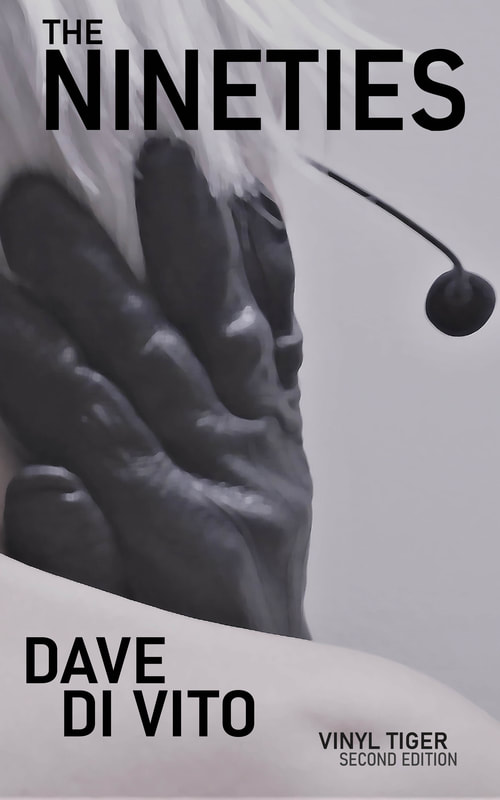 SIX years after it was released, ten of the seventeen tracks on Robbie Williams' seventh studio album are still in high rotation on the fourth incarnation of my itunes. I gotta say, I have a compartmentalised soft spot for Robbie. I find a lot of his early solo catalogue stuff a mix between naff and uninspired 90s kind of corporate pop, but occasionally it was brilliantly done. For me he turned the corner with Sing When You're Winning, and immediately lost me again when he started Swinging with Nicole frigging Kidman, but has since mostly won me over again, even though the masses don't seem to be as up for him as they once were. Robbie for me, is at his best when he makes wonky pop. Unexpected, fun, unpredictable pop that transcends the corporatisation of pop music and lets his genuine talent for writing brilliant lyrics come to the fore. He's got a great voice, and when he's not banging on about aliens or Elvis, his laddiness is pretty god damn charming. He remains one of the only convincing across the board winners of Coffee/Shag, a serious intellectual game which a couple of my besties and I play. We had to invent a third category for him. On Rudebox, Robbie lets rip, and there is a looseness to this recording that he has not ever achieved since. At surface level, the album comes across as Robbie playing with synth pop and stroking himself while he pulls out the witty lines. But this album is more than just a collection of songs that play on pop culture myths. You know, like urban myths that have central pop figures as their subjects. The pairing of The 80's and The 90's are like two distilled memoirs that you simply can't put down. In the space of five minutes Robbie reels off his adolescent achievements ranging from his first sexual and drug encounters, through to some pretty personalised reflections of growing up in 80s England in The 80s. In The 90s he picks up the thread and describes his ascent to boy band stardom and then the spectacular way in which he crashed down from those heights. There is something inherently sad and gripping in these reflections that also shows how skilled Robbie is with writing. Intellect and pop don't often meet, but when they do, like they do here against a melancholic electronic backdrop, the results are pretty astounding. Click on READ MORE to continue the posting. The 80s references are all over this album; in spirit its an eighties album made for the 21st century; a cover of Steven Duffy's Kiss Me and collaborations with The Pet Shop Boys add authentic dimensions of eighties dance pop to the album, whilst the album's songs more than occasionally have the plastic generation's stamp all over them; the title track is a retro tribute to 80s culture, while The Actor rips a new asshole off a lover who seems to be consumed by Reagan era values to the point where Robbie can't work out where the acting starts and the faking stops. The fact that we are all players in a non stop series by way of CCTV and increased surveillance doesn't escape him either; he's astute enough to fantasize that "in the future everybody will be anonymous for fifteen minutes."
Bonus track Dickhead is all bravado; cock sure, but really sums up the genius behind this album in one line: "What did you expect dickhead? Radiohead? Dickhead? This is pop, dickhead." Then of course there's She's Madonna, part spank bank fantasy, and part cutting observation on the pop culture myth regarding how Guy Ritchie supposedly left a lover because, well, the other woman was Madonna. "I love you baby, but face it, She's Madonna." Elsewhere, the album is stamped by collaborations with Lily Allen (an improvement on Nicole friggen Kidman), and the two pay tribute to Manu Chao by fusing two covers together, Chao's classics Bongo Bong and Je Ne T'aime Plus. Its an irreverent, fun moment which probably won't please purists but reinforces the fact that Williams is more than happy to take a bit leverage with his music, and this is one of the strongest selling points of this album. Six years on, this is still an album that stands up to repeated lessons, brings a smile to the laugh, and lends weight to idea that Williams is one of the few acts of his generation who made it to the top without checking his personality at the door, lad or not.
0 Comments
Your comment will be posted after it is approved.
Leave a Reply. |
Dave
|
|
|
Dave Di Vito is a writer, teacher and former curator.He's also the author of the Vinyl Tiger series and Replace The Sky.
For information about upcoming writing projects subscribe to the mailing list. Dave hates SPAM so he won't trouble you with any of his own. He promises. |




 RSS Feed
RSS Feed